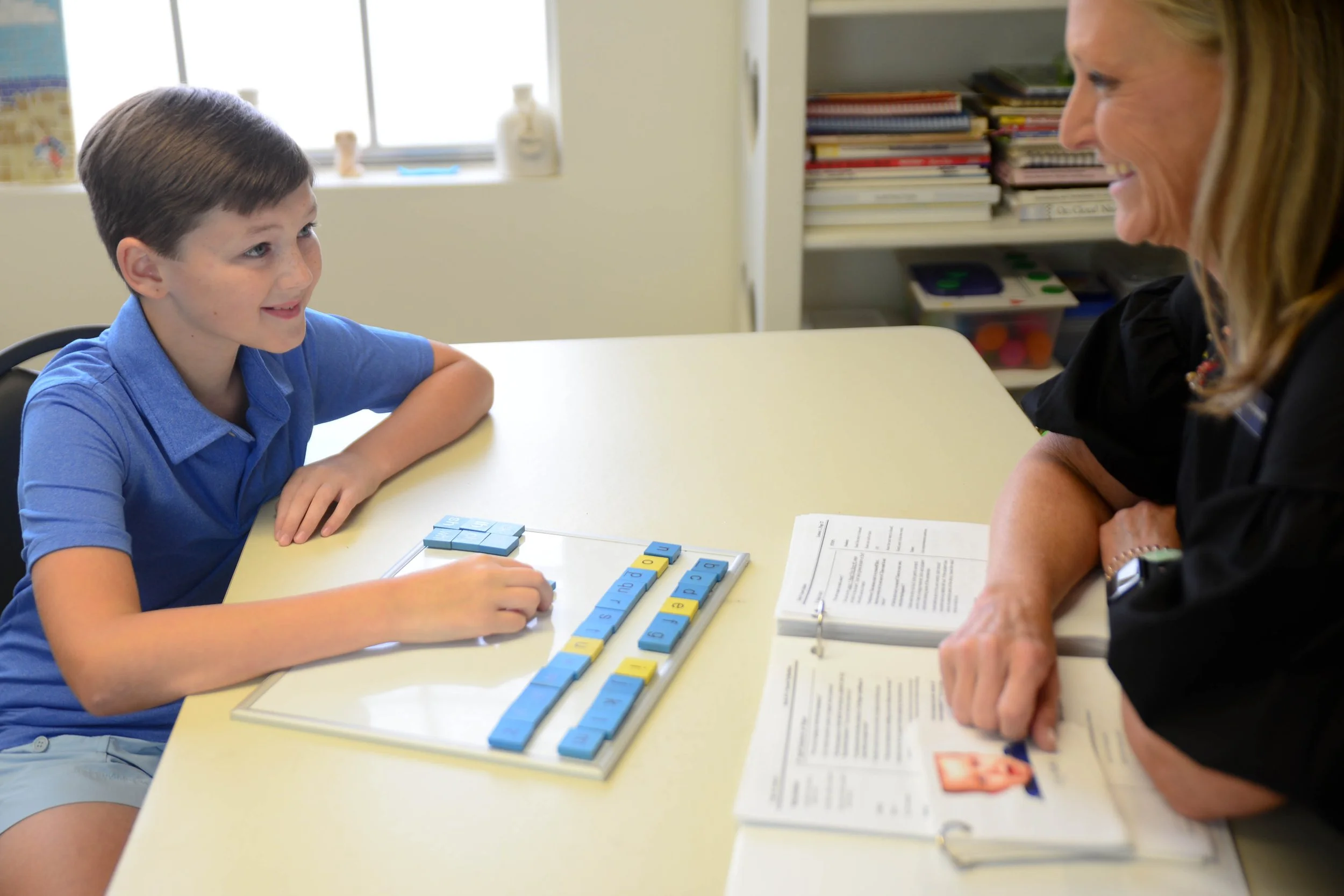Dyslexia
Dyslexia is a learning disability that makes reading, writing, and spelling extremely difficult. Approximately 10-20% of the population has dyslexia with varying degrees of severity, and 70% of individuals with learning disabilities have dyslexia.
Contrary to popular myth, people with dyslexia do not see words or letters backwards, and dyslexia is not a vision problem. Instead, research shows that people with dyslexia struggle with reading and spelling because their brains process sounds differently.
Dyslexia occurs in people of all intellectual levels including bright and gifted individuals. Dyslexic people possess many right brain strengths such as creativity, the ability to think outside of the box, empathy towards others, sports, music, and visual memory. Although dyslexia is a life-long condition, most individuals can overcome difficulties with proper intervention and encouragement to pursue their areas of strength.
{WARNING SIGNS}
Speech problems such as delayed speech, articulation difficulties (r-l, m-n, s-sh,ch), or stuttering
Slow to develop dominant hand
Trouble with rhyming in early grades
Handwriting problems such as strange letter formation, awkward pencil grip, illegible handwriting, or difficulty learning cursive
Difficulty copying off the board or a worksheet
Letter or number reversals persist past 1st grade
Slow, choppy, inaccurate reading
Trouble memorizing things like phone number or the days of the week
Difficulties with math such as trouble memorizing math facts, memorizing sequence of steps, or directionality
Terrible spelling
Dysgraphia
Dysgraphia is a learning disability that impacts writing. It can contribute to illegible handwriting, poor spelling, and weak written expression. Additionally, people with dysgraphia experience difficulty organizing letters and numbers on a page.
{WARNING SIGNS}
Preschool
Avoiding writing and/or drawing
Quickly tiring during a writing task
Difficulty with letter formation
Elementary School
Subvocalizing while writing
Forgetting to write words in a sentence
Difficulty thinking of what to write
Illegible or immature handwriting
High School Student & Adult
Poor written expression compared to verbal skills
Difficulty showing understanding on paper/pencil tasks
Trouble with grammar and spelling
DYSCALCULIA
Dyscalculia is a learning disability in the area of math.
{WARNING SIGNS}
Preschool
Trouble learning to count
Difficulty naming numbers and recognizing printed numbers
Trouble understanding that a printed number (2) represents a concrete amount (2 dogs)
Elementary School
Difficulty memorizing math facts
Weak math problem solving skills
Wake long term memory for mathematical knowledge
High School Student & Adult
Trouble understanding mathematical concepts
Poor mental math abilities
Difficulty thinking strategically
Reading Comprehension Disability is a learning disability characterized by difficulties with reading comprehension.
S-RCD
{WARNING SIGNS}
Re-reading a text numerous times
Remembering only small details instead of main ideas
Repeatedly asking the same question
Attention Deficit/Hyperactivity Disorder: Although not a specific learning disability, Attention Deficit/Hyperactivity Disorder (ADHD) can significantly impact learning. Many individuals with learning disabilities also have ADHD.
ADHD
{WARNING SIGNS}
Difficulty with still, silent activities
Slow to process information
Often disrupts games or conversation
Difficulty controlling outbursts






